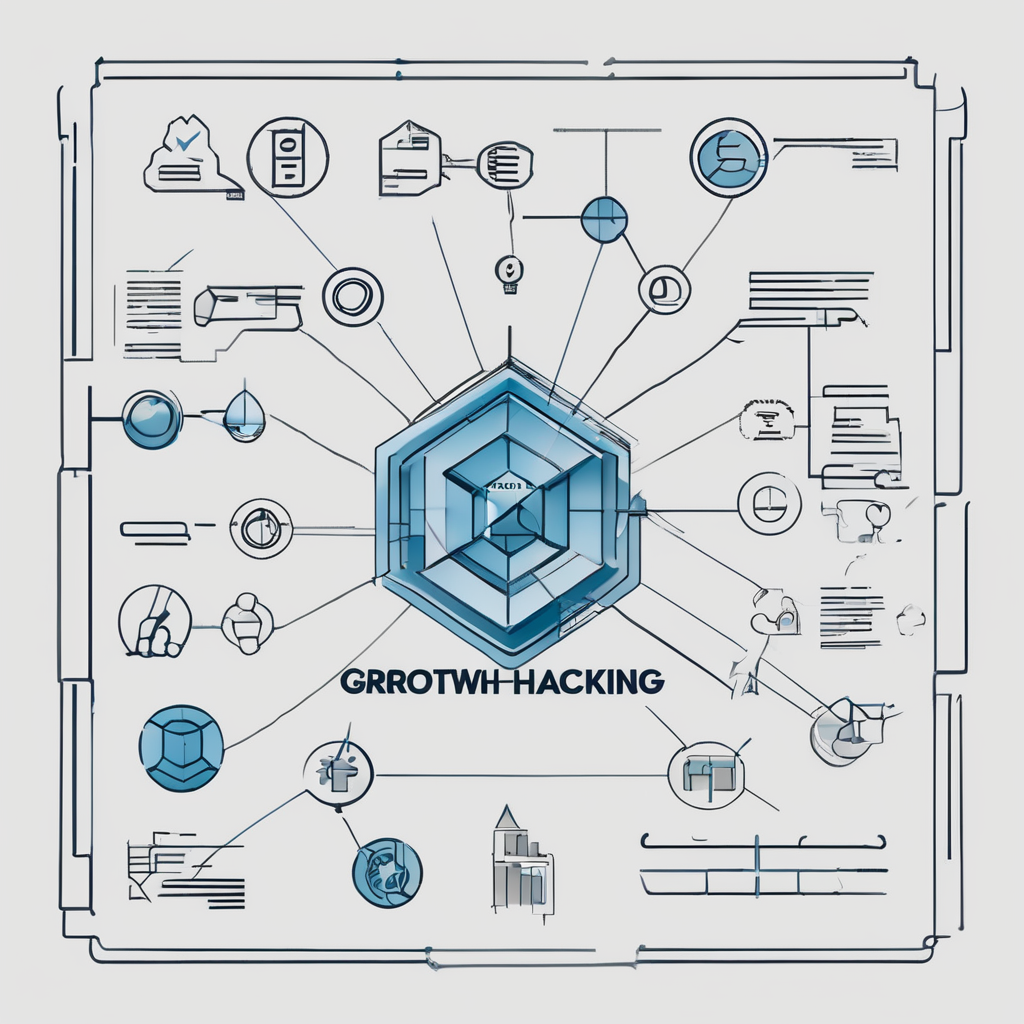The rise of virtual and hybrid events has transformed the landscape for UK event planners. Adapting to this new norm requires innovative strategies to create seamless experiences that engage both in-person and online attendees. Discover how to effectively integrate technology, foster engagement, and deliver memorable events that resonate with a diverse audience. This guide unlocks essential tactics to enhance your planning process, ensuring your events stand out in an increasingly digital age.
Understanding Virtual and Hybrid Events
In the evolving landscape of event planning, Virtual Events and Hybrid Events have become increasingly significant. Virtual Events are entirely online, allowing participants to join from anywhere with an internet connection. In contrast, Hybrid Events combine in-person attendance with a virtual component, offering flexibility and broader reach.
Additional reading : Top Strategies for UK Retailers to Enhance Shopping with Augmented Reality Experiences
The UK event planning industry has seen a notable shift towards these event types. This trend is driven by the need for accessibility and the ability to engage a global audience. Virtual Events are particularly advantageous for reducing costs and logistical challenges, while Hybrid Events cater to diverse preferences, accommodating both physical and remote attendees.
Integrating virtual elements into traditional events is crucial for staying relevant. It enhances engagement through interactive features like live chats and Q&A sessions, which are not possible in purely physical settings. Moreover, these elements provide valuable data insights, helping organisers tailor future events to audience preferences.
Additional reading : Top Strategies for UK Healthcare Providers to Effectively Integrate AI in Diagnostic Processes
Event planners are increasingly adopting these formats to create inclusive and dynamic experiences. As technology advances, the potential for innovation in Virtual and Hybrid Events continues to grow, making them essential in the modern event planning toolkit. Understanding these event types and their benefits is key to successful event execution in today’s digital age.
Key Strategies for Successful Integration
Incorporating Event Integration Strategies is crucial for blending formats effectively. To achieve this, a step-by-step process can guide planners in harmonizing virtual and hybrid elements. The first step involves setting clear objectives for both components. This ensures that each aspect of the event aligns with the overall goals, whether it’s increasing engagement or expanding reach.
Planning Techniques play a vital role in this integration. Begin by identifying the target audience and understanding their needs. This information helps tailor the event experience across all platforms. Next, choose the right technology that supports both in-person and virtual participation seamlessly. Platforms with interactive features like real-time polls and Q&A sessions can enhance engagement.
Creating a cohesive audience experience is another key strategy. Ensure that branding, content, and communication are consistent across all channels. This uniformity helps participants feel connected, regardless of how they attend. Additionally, consider the timing and pacing of the event. Synchronizing schedules for both virtual and in-person attendees can prevent any disconnect.
In summary, successful event integration relies on clear objectives, strategic planning, and a cohesive experience. By following these steps, event planners can deliver dynamic and inclusive events that cater to diverse preferences.
Technology Recommendations
When planning Virtual Events or Hybrid Events, choosing the right Event Technology is crucial. The right tools can make or break the experience for attendees. Essential technology tools include platforms that support live streaming, virtual networking, and interactive features like polls and Q&A sessions. These tools are the backbone of a successful event.
Several Virtual Event Platforms stand out for their capabilities. Platforms like Zoom, Microsoft Teams, and Hopin offer robust features for virtual and hybrid events. They provide seamless integration for both in-person and remote participants, ensuring everyone feels connected. Comparing these platforms, it’s important to consider user interface, scalability, and feature set to match your event’s needs.
Hybrid Solutions require a blend of physical and digital tools. This includes high-quality video and audio equipment for live streaming, as well as platforms that support both virtual and in-person interactions. The ability to switch seamlessly between formats is a key consideration.
Tech support is vital during events. Having a dedicated team ready to troubleshoot ensures smooth operation, minimizing disruptions. This support can address issues like connectivity problems or platform glitches, maintaining a professional experience. Prioritizing tech support can significantly enhance the overall quality of your event.
Engaging Your Audience
Engaging your audience in Virtual Events and Hybrid Events requires innovative Interaction Techniques and effective Participation Strategies. Ensuring attendees remain interested and active is crucial for a successful event.
One effective approach is to utilise polls and Q&A sessions. These tools not only encourage participation but also provide real-time feedback, allowing organisers to adjust content on the fly. Polls can be used to gauge opinions or test knowledge, while Q&A sessions offer a platform for attendees to voice questions and receive immediate responses.
Breakout rooms are another powerful tool for fostering engagement. They allow smaller groups to discuss specific topics in detail, promoting deeper interaction and collaboration. This setup is particularly beneficial in Hybrid Events, where both in-person and virtual attendees can participate in focused discussions.
To further enhance Audience Engagement, consider strategies for fostering networking opportunities. Virtual networking lounges or scheduled networking sessions can mimic the informal interactions that occur at physical events. Encourage participants to connect through dedicated platforms, where they can share contact information and engage in discussions.
By combining these techniques, event planners can create a dynamic and inclusive environment that keeps all attendees engaged, regardless of their mode of participation.
Budget Considerations for Hybrid Events
Navigating the financial landscape of Hybrid Events requires meticulous Event Budgeting and Cost Management. Understanding the breakdown of costs is essential to ensure financial success. Key expenses include technology investments, such as high-quality video and audio equipment, and platform fees for virtual participation. Additionally, consider venue costs for the physical component, including rental, staffing, and logistics.
Financial Planning plays a pivotal role in maximizing budget efficiency. Start by setting a comprehensive budget that encompasses all potential expenses. Prioritise essential elements like technology and venue, while seeking ways to reduce costs in less critical areas. For instance, opting for scalable platforms can help manage expenses as your event grows.
Exploring Funding Options and Sponsorship Opportunities can significantly alleviate financial burdens. In the UK market, partnerships with local businesses or industry leaders can provide valuable financial support. Sponsors may offer monetary contributions or in-kind services, such as technology or catering, reducing overall costs.
To further enhance budget efficiency, consider these tips:
- Negotiate with vendors for better rates.
- Leverage early-bird discounts for venue bookings.
- Explore hybrid event grants or funding programs.
By implementing these strategies, planners can effectively manage their budgets, ensuring successful and financially viable Hybrid Events.
Challenges of Blending Formats
Blending formats in Hybrid Events presents unique Event Challenges that UK planners frequently encounter. One primary hurdle is managing the technical difficulties that arise from integrating virtual and physical components. Ensuring seamless connectivity and synchronisation between platforms can be complex. To address this, planners should invest in reliable technology and conduct thorough pre-event testing to troubleshoot potential issues.
Hybrid Event Barriers also include the challenge of maintaining audience engagement across different formats. Virtual attendees might feel disconnected from the in-person experience, leading to diminished participation. Implementing interactive features such as live polls and Q&A sessions can bridge this gap, fostering a sense of involvement and community.
Another significant challenge is the logistical complexity of coordinating both virtual and physical elements. This includes managing schedules, technology, and staffing to ensure a cohesive experience for all participants. To overcome these obstacles, planners must develop comprehensive strategies that incorporate clear communication and detailed planning.
Moreover, addressing audience engagement gaps requires creative solutions. Utilising breakout rooms and networking sessions can enhance interaction, providing opportunities for attendees to connect meaningfully. By tackling these challenges with effective Problem Solving techniques, event planners can successfully blend formats and deliver impactful Hybrid Events.
Case Studies of Successful Events
Exploring Event Case Studies offers valuable insights into the practical application of best practices in the UK. These Success Stories highlight how industry leaders have navigated the challenges of virtual and hybrid events, providing a blueprint for future endeavours.
One notable example is a large-scale Hybrid Conference in London. This event successfully integrated physical and virtual components, engaging over 5,000 attendees globally. The organisers employed cutting-edge technology to ensure seamless interaction between in-person and remote participants. They utilised real-time polls and interactive Q&A sessions to maintain high levels of engagement, demonstrating the power of innovative Best Practices.
Key takeaways from these events include the importance of meticulous planning and the strategic use of technology. Industry leaders emphasise the need for robust tech support and pre-event testing to mitigate technical issues. Additionally, ensuring consistent branding and content across platforms helps create a unified experience for all attendees.
Lessons learned from these case studies stress the significance of flexibility and adaptability. Organisers must be prepared to adjust plans in response to real-time feedback and unforeseen challenges. By applying these insights, event planners can enhance the success of their future virtual and hybrid events, ensuring they are both impactful and inclusive.
Audience Feedback Mechanisms
Understanding and implementing effective Feedback Collection methods is crucial for refining Virtual and Hybrid Events. Gathering Audience Insights allows event planners to identify strengths and areas for improvement, ensuring each event is more successful than the last.
To collect feedback efficiently, consider using a variety of tools and techniques. Post-event surveys are a traditional yet effective method, providing structured insights into attendee experiences. Digital tools like SurveyMonkey or Google Forms can streamline this process, offering easy distribution and analysis. Additionally, in-event polls can capture immediate reactions, giving organisers real-time data to adjust ongoing sessions if needed.
Incorporating Improvement Strategies based on collected feedback is essential for enhancing future events. Analyse responses to identify common themes or issues, then develop actionable plans to address them. For instance, if attendees express difficulty in accessing certain virtual features, consider investing in more user-friendly technology or providing clearer instructions.
Feedback isn’t just about identifying problems; it can also highlight what attendees enjoyed, allowing planners to replicate successful elements in future events. By leveraging audience insights, event planners can continuously evolve their strategies, ensuring that each event not only meets but exceeds expectations.
Marketing Your Virtual and Hybrid Events
In today’s competitive landscape, effective Event Marketing is vital for the success of Virtual and Hybrid Events. To maximise Audience Reach in the UK, adopting innovative Promotion Strategies is essential.
Start by leveraging the power of social media. Platforms like LinkedIn, Twitter, and Instagram can be instrumental in creating buzz and engaging potential attendees. Craft compelling content that highlights the unique features of your event, such as exclusive speakers or interactive sessions. Use targeted ads to reach specific demographics, ensuring your message resonates with the right audience.
Email marketing remains a powerful tool for event promotion. Develop personalised email campaigns that provide valuable information about the event, including schedules, speakers, and registration details. Incorporate engaging visuals and clear calls-to-action to encourage sign-ups.
Building a strong online presence is crucial. Establish a dedicated event website that serves as a central hub for information and registration. Ensure the site is user-friendly and mobile-responsive, catering to a wide audience. Additionally, foster a sense of community by creating online forums or groups where attendees can connect before and after the event.
By integrating these strategies, planners can effectively promote their events, ensuring high attendance and engagement.
Future Trends in Event Planning
In the rapidly evolving world of event planning, the Future of Events is being shaped by significant Industry Trends and Event Innovation. One of the most prominent emerging trends is the increasing integration of artificial intelligence and machine learning. These technologies are set to revolutionise how events are organised, offering personalised experiences and predictive analytics to enhance attendee engagement.
Virtual and Hybrid Events will continue to dominate the landscape, driven by the need for flexibility and accessibility. As technology advances, we can expect more immersive experiences through augmented and virtual reality, allowing attendees to interact in ways previously unimaginable. This shift will cater to changing audience expectations, with a demand for more interactive and engaging content.
The UK event industry is poised for transformation, with predictions indicating a rise in sustainable practices. As environmental consciousness grows, event planners will be expected to adopt eco-friendly solutions, such as digital ticketing and virtual attendance options, reducing the carbon footprint of events.
To prepare for these advancements, planners must stay informed about technological developments and be ready to adapt. Embracing innovation and understanding the evolving needs of audiences will be crucial for success in the future landscape of event planning.






